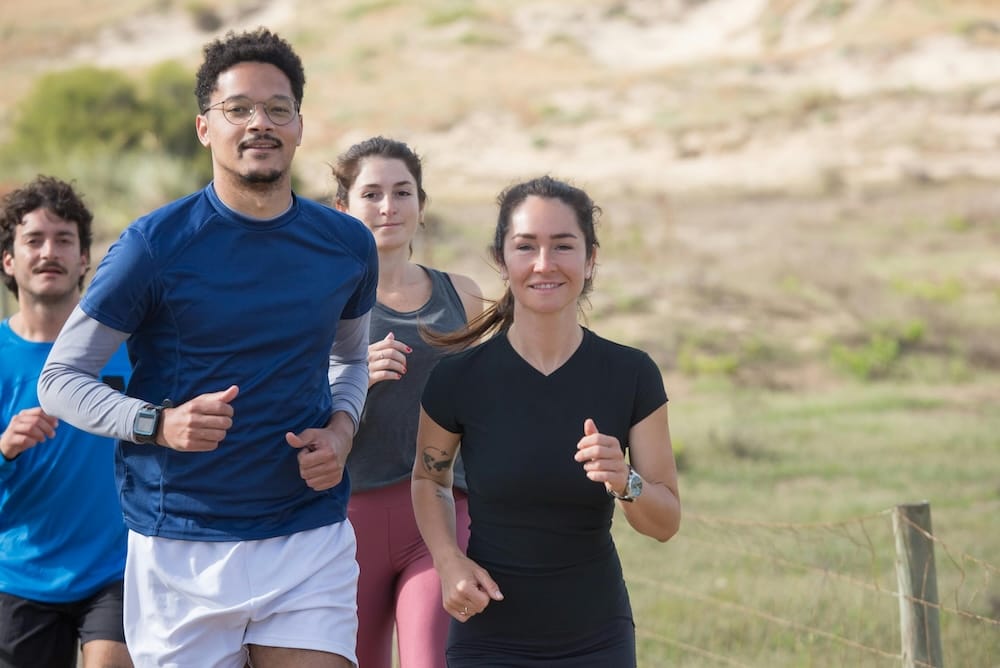Break free from limited beliefs, one step at a time
When I first started running regularly, it gave me a wonderful sense of achievement. A decade on, I continue pound the streets nearly every day – and I’ve done charity races and half marathons. But, still, I feel like a fraud.
Imposter syndrome is normally something we associate with the working world. It’s the uncomfortable feeling that you’re going to be unmasked as a fake at any minute, despite overwhelming evidence otherwise. It’s how I feel when someone asks what I do in my spare time. Invariably, I say that I like to run – but I’m not a ‘real runner’.
And I’m not alone. Therapist Jodie Marks has completed four marathons and an ultra-marathon, along with competing in many fitness events. “However, even with the pretty hardware that hangs from the medal holder in my kitchen, I still struggle with the idea that I’m a ‘runner’,” Jodie explains.
“Imposter syndrome occurs when we feel as though we don’t belong. Runners are prone to this feeling because when we put our trainers on for a shuffle or sprint, we are surrounded by like-minded people,” Jodie continues. “What makes imposter syndrome so prevalent in running is the very thing that makes it so great: the sociability, the visibility, and the shared space with other runners.” So, how can you tackle it?
Face up to runner stereotypes
“In the age of social media, where we are bombarded with the perfectly curated reel of a fitness influencer, we can feel as though we’ve failed before we’ve even started,” says Jodie. “It is an impossible standard to live up to, yet we tell ourselves that what we’re seeing is the norm.”

Stereotypes about what a runner looks like often contribute to imposter syndrome. The way they’re portrayed on TV, in films, or in adverts – with expensive kits and visibly toned bodies – leaves us feeling like we don’t look the part. I’m a healthy size 14, but I often feel like my mid-sized body isn’t considered particularly athletic. Although I know this isn’t true, it’s a difficult feeling to shake off.
To combat this, Jodie advises thinking about your motivation for running. “Is it to be healthier, fitter, stronger, to help with your mental health, to be a positive role model to your children? These will be weapons you use against the imposter when it tells you you’re not good enough.”
Address your core beliefs
Dr Elena Touroni, a psychologist and co-founder of The Chelsea Psychology Clinic, says that underlying psychological factors like a ‘defectiveness schema’ can also contribute to feelings of inadequacy. “This involves a core belief that you are fundamentally flawed or inferior, which can lead to chronic self-doubt. This can fuel imposter syndrome, making you feel like you don’t deserve to call yourself a runner, despite your dedication or achievements.”
Your past experiences of exercise can exacerbate these feelings, too. Sometimes, I still feel like the awkward teenager who was picked last for sports teams – and I have to remind myself that I’m no longer this person.
Find confidence with a community
One of the most frustrating things about imposter syndrome is that it sucks the joy out of exercising. “It can really affect your confidence,” says Dr Touroni. “You might shy away from joining running groups or participating in events, fearing judgement.”
This mindset can make it difficult to step out of the door and enjoy the many benefits of running. But in reality, there is no one-size-fits-all image of a runner. Whether you do 10 minutes or 10km, your experiences are valid and valuable.
In spite of these feelings, pushing yourself to engage with supportive running groups or communities, locally or online, can be a game changer. Sharing experiences with others can help you realise that many people feel the same way, and provide encouragement and motivation.

Run your own race
It’s important to focus on your own progress, and celebrate your achievements, no matter how small. “Setting personal goals can help you feel proud of your accomplishments and reinforce that you are, indeed, a runner,” says Dr Touroni.
Documenting your runs –making a particular effort to record how you felt before, during, and after – can keep you on course. “This can help you see tangible evidence of your growth as a runner,” says Dr Touroni.
Letting go of imposter syndrome is a marathon, not a sprint. So take it one step at a time, the finish line is just around the corner


Comments